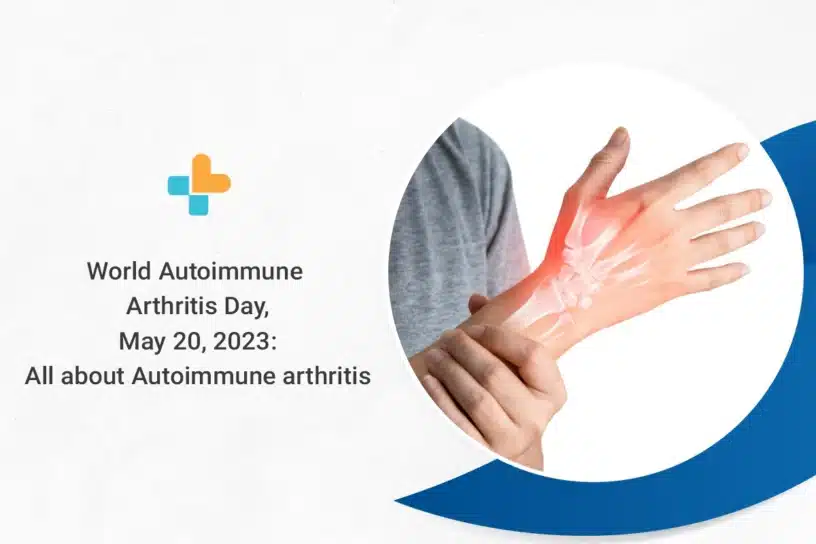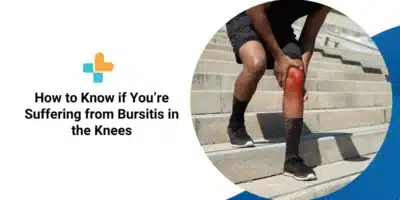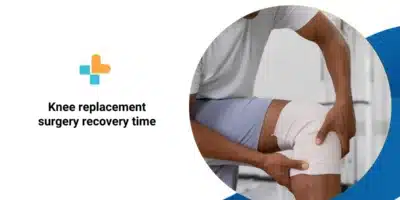In 2012, The International Autoimmune Arthritis Movement (I.A.A.M.) established World Autoimmune Arthritis Day to raise awareness of autoimmune and autoinflammatory disorders that manifest as arthritis symptoms. World Autoimmune Arthritis Day is celebrated on May 20th every year globally. Autoimmune arthritis is a general term that is used to refer to various types of diseases, such as rheumatoid arthritis, psoriatic arthritis, gout and lupus. Autoimmune arthritis is a condition that affects the joints, bones and cartilage.
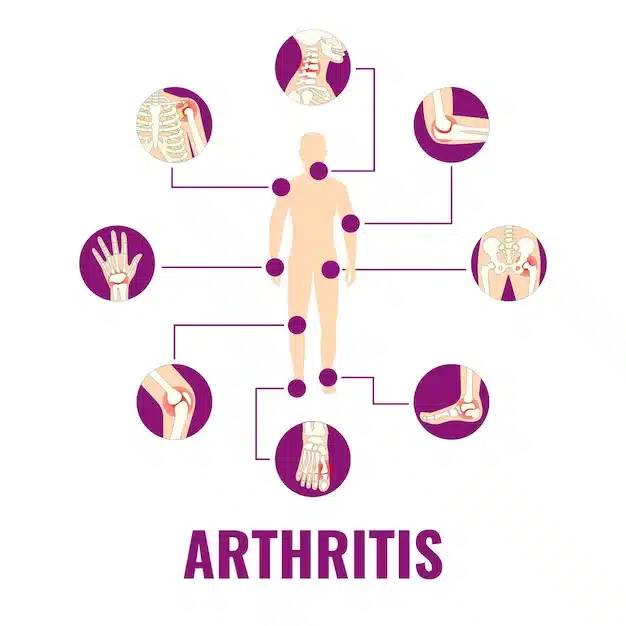
Autoimmune diseases and autoinflammatory conditions are characterized by a hyperactive response of the immune system that causes damage to the organs, tissues or cells in the body. There are more than a 100 types of autoimmune arthritis affecting people globally. It is estimated that approximately 23.5 million individuals worldwide are impacted by various forms of autoimmune diseases.
What is autoimmune arthritis?
Autoimmune arthritis is a condition in which the patient’s immune system attacks the cells in its body, resulting in joint inflammation. The inflammation caused due to autoimmune arthritis is not limited only to the joints and may also affect other organs in the body.
What are the different forms of autoimmune arthritis?
Although this list doesn’t contain all autoimmune arthritis, some of the most commonly occurring forms of autoimmune arthritis include the following,
Rheumatoid arthritis (R.A.):
Rheumatoid arthritis (R.A.) is a chronic autoimmune problem that affects the joints on both sides of the body. Pain, stiffness and swelling in the joints is a common symptom of rheumatoid arthritis. R.A. can cause pain in different parts, such as knees, ankles, hands, fingers, toes, wrists etc.
Psoriatic arthritis:
This type of arthritis is the one that affects patients with psoriasis. As a result of psoriatic arthritis, the patient’s joints are affected. This condition causes pain, swelling and stiffness in the joints. It also causes changes in the nails.
Ankylosing spondylitis (AS):
This is a type of arthritis that primarily manifests as lower back pain. This condition is characterized by various symptoms such as hip pain and back stiffness. As the condition progresses, there is a possibility of the vertebrae in the spinal column fusing together, resulting in a rigid and immobile spine (ankylosis).
Juvenile arthritis:
Juvenile idiopathic arthritis (J.I.A.), also referred to as juvenile rheumatoid arthritis, is the prevailing form of arthritis that occurs among children under the age of 16. This condition causes pain, swelling and stiffness of joints in children. While certain children may experience the symptoms of this condition for a few months, some may experience them for several years.
Palindromic rheumatism:
This is a very rarely occurring form of arthritis that leads to joint inflammation. Palindromic rheumatism is characterized by symptoms such as swelling, pain, fever and stiffness in fingers, wrists and knees.
What are the symptoms of autoimmune arthritis?
The various symptoms of autoimmune arthritis usually develop gradually and may come and go. Apart from pain, swelling and inflammation in the joints on both the sides of the body, the following signs and symptoms may be seen in a patient having autoimmune arthritis,
- Joint deformation
- Decrease in range of motion
- Loss of weight
- Difficulty in sleeping
- Dry mouth
- Eye problems such as inflammation, dryness and itching
- Discharge from the eyes
- Anemia
- Fever
- Chest pain while breathing
Who is at risk of developing autoimmune arthritis?
The risk of developing autoimmune arthritis is high in people having certain risk factors. These various risk factors of autoimmune arthritis may include the following,
- Genetic factors
- Hormonal factors
- Gender (women are at more risk of developing rheumatoid arthritis when compared to men)
- A family history
- Age (people aged between 50-60 years are at high risk)
- Having obesity
How can autoimmune arthritis be treated?
Depending on the type of autoimmune arthritis, the severity of the patient’s symptoms and their overall health, the autoimmune arthritis treatment plan will be formulated by the doctor. Some of the autoimmune arthritis treatments that a doctor can prescribe include the following,
Medications:
Some of the medications that may be prescribed to relieve the symptoms of autoimmune arthritis may include the following,
- Disease-modifying antirheumatic drugs (D.M.A.R.D.s)
- Nonsteroidal anti-inflammatory drugs (NSAIDs)
- Biologics
- Corticosteroids
- Immunosuppressants
Physical therapy:
A physical therapist may help the patient with autoimmune arthritis by providing physical therapy to improve the symptoms of pain, thereby improving flexibility.
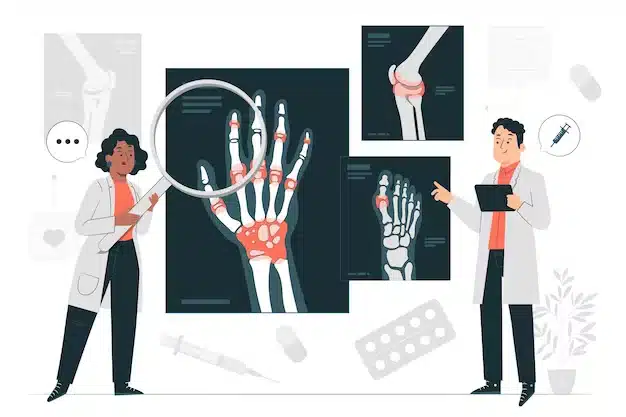
Surgery:
This is usually required in cases where the damage due to autoimmune arthritis is severe.
Lifestyle changes:
Apart from the various medical treatments for autoimmune arthritis, lifestyle changes are essential to improve and manage the symptoms of autoimmune arthritis. The following lifestyle changes are essential in ensuring the proper management of autoimmune arthritis,
- Regular exercising such as walking, swimming or other low-impact workouts
- Eating a healthy and nutritious diet
- Maintaining a healthy weight to reduce pressure on the joints
- Getting a good 7-8 hours of sleep
- Quitting the habit of smoking
Complications of autoimmune arthritis
The following complications may arise if autoimmune arthritis is not managed properly with medications and lifestyle modifications,
- Congestive heart failure
- Damage to the tissues
- Pleural effusions (fluid in the chest)
- Pulmonary fibrosis (scarring)
- Pulmonary hypertension
- Pericarditis (Inflammation in the outer lining of the heart)
- Hardening of the arteries
- Diabetes
- Osteoporosis
Conclusion
Autoimmune arthritis is a lifelong condition that may worsen with time when not managed well. Hence, this World Autoimmune Arthritis Day 2023, it is important to spread awareness about the symptoms of autoimmune arthritis early and start its treatment. Lifestyle modifications play the most vital role in the effective management of autoimmune arthritis. This World Autoimmune Arthritis Day 2023, educate people about adopting a healthy lifestyle. This is because a healthy lifestyle will not only help in managing autoimmune arthritis but also improve overall health.
At Ayu Health Network of Hospitals, we provide top-notch facilities and high-quality medical care to patients from all over the world. We provide the best quality treatment for all diseases, including autoimmune arthritis. Our team is skilled and experienced in providing affordable treatments such as physical therapy, personalized diet plans, and counseling.
Our Hospital Locations
Orthopaedics Surgery Hospitals in Chandigarh | Orthopaedics Surgery Hospitals in Bangalore | Orthopaedics Surgery Hospitals in Jaipur | Orthopaedics Surgery Hospitals in NCR | Orthopaedics Surgery Hospitals in Hyderabad
Our Doctors
Orthopaedics Surgery Doctors in Chandigarh | Orthopaedics Surgery Doctors in Bangalore | Orthopaedics Surgery Doctors in Jaipur | Orthopaedics Surgery Doctors in NCR | Orthopaedics Surgery Doctors in Hyderabad
About the Author
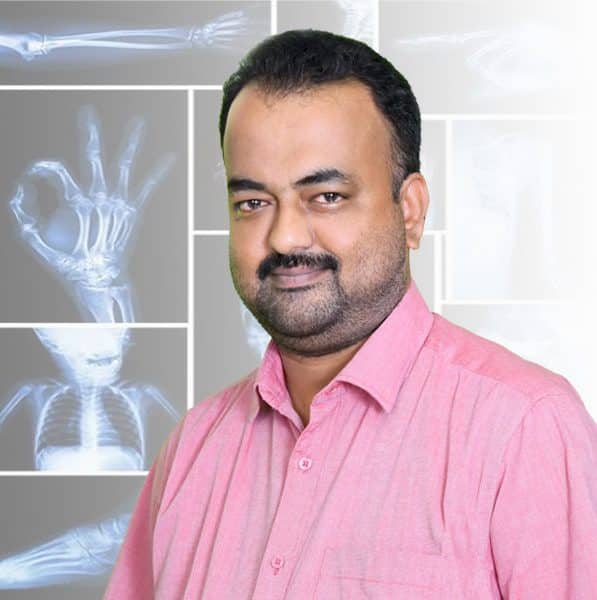
Dr. Manjunath Kumar K.
Dr. Manjunath Kumar K. is a renowned Orthopaedics currently practicing at Ayu Health, Bangalore.
He is an orthopedic surgeon currently practicing at Mallige Medical Center, Bangalore. A highly qualified doctor, he has completed his MBBS from Bangalore Medical College and MS in Orthopedics from KIMS, Hubli. further higher surgical training was from England, Birmingham. His post-graduate degree from the royal college of Edinburgh and the Royal College of Ireland. He also has vast experience in treating Unilateral Total Knee Replacement, Bilateral Total, Knee Replacement, Total Hip Replacement Surgery, and ACL Tear

